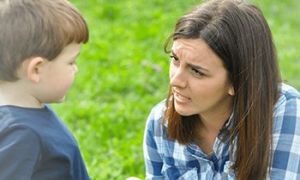Playing with puzzles has a significant impact on a child's physical skills, developing fine motor skills through the coordination of small muscles. Children who have developed fine motor skills tend to find it easier to write, draw and learn to play instruments. The following article provides information on the benefits of puzzles for children.
When a child completes a puzzle they are acquiring many skills without even realizing it. Puzzles enable a child to develop problem-solving skills on how to place a piece in the correct space, cognitive skills through visual-spatial awareness, fine motor skills to learn how to grasp and pick up pieces through manipulation, hand/ eye coordination by placing puzzle pieces in the correct order and social skills by completing puzzles with peers.
Puzzles based on numbers, alphabets or animals will provide a child with the ability to learn those concepts and improve their knowledge. Self-esteem and confidence will also increase as a child begins solving different puzzles. By completing different types of puzzles, children will learn how to solve problems using different methods. Listed below are some suggested learning objectives that support a child's overall development.
- Allows children to learn the concepts of parts and whole.
- Enables children to build visual – perceptual skills.
- Children develop attention skills and concentration.
- Improvement of hand-eye coordination and fine motor skills.
- Assists language skills as children talk about what they are doing while completing the puzzle.
- Enables children to extend thinking skills such as remembering, matching, sorting, recognizing and problem-solving.
Benefits Of Puzzles Include:
- Gross Motor Skills
Working with larger puzzle pieces and stacking puzzle games and blocks can enhance the larger movements of a child. Gross motor skill development involves the large muscles in the arms, legs, and torso. Gross motor activities are important to everyday physical activities like walking, running, throwing, lifting, kicking, etc. So, when a toddler is playing with big pieces of puzzles it gives him the required movement to develop gross motor skills. Usually, a child starts playing with puzzles with big pieces and arranges them on the floor. It means the child’s body is engaged when building them and gross motor skills can be developed.
- Fine Motor Skills
It is one of the important development sectors of child development. Puzzles help to increase fine motor ability. Children try to grab with their fingers, hold by their palms, and adjust by balancing hands and help the muscles of their palms strong. The development of fine motor skills is very important as upon it child’s writing ability is dependent.
- Hand-eye coordination
Hand-eye coordination is getting supported by repeated practice with puzzles. A child learns to make an idea that which pieces of the puzzle are going to fix where and perform accordingly. Better hand and eye coordination are responsible for that.
- Problem-solving skills
Puzzles give them challenges to perform. Children who practice with puzzles have problem-solving ideas and they know how to perform the challenge. Educators can help children to make them learn about the strategies to solve a puzzle in the following ways:
- After dumping all the pieces of the puzzle tell them to make the pieces upside so that they can see the pieces and also get an idea about the impending task.
- Show how to identify the edges of pieces.
- Help them to make the outline first together.
- Teach them how to sort out pieces by colour, shape, pattern, etc
- Eventually, decrease adults’ supervision when they are engrossed in work
- Finally, adults will enjoy watching how they are solving the problems
All puzzles are basically problems needing to be solved. Each one poses a challenge and requires strategic thought to be completed.
- Memory
Puzzles help to increase memory. Children practice puzzles and have to remember which piece is going to fix where. This practice helps them to increase memory.
- Self -esteem
After completing a puzzle or trying it in a positive way give them the joy of doing constructive work. They feel confident about themselves and they believe that they are able to solve any other puzzles. This positive feeling drives them positively in their lives.
- Socialisation
Puzzles make children socialise. They learn to share, cooperate, communicate, interact, wait for their turn, make them humble, give feelings of wholeness and make them more active in groups. Children need to cooperate and collaborate and they experience the satisfaction of working towards a common goal. Thus it makes children socialize.
- Language and Concept Development
Puzzles strengthen vocabulary, such as shapes, colours, animals, and transportation. They can also help little ones practice expressive language skills like requesting (gestures count), and receptive language skills like following simple directions. The shapes and images on the pieces represent things and concepts. These will be reinforced even further if a parent takes the opportunity to extend children’s vocabulary.
- Success and Self-Confidence
Builds up a feeling of competence and worth. Feeling competent is one of the basic emotional needs of a child. Puzzles are a great way to experience success since a completed puzzle is a very clear symbol of achievement. It is also a challenging activity so children learn how it feels to put in a lot of effort to achieve that success.
- Perseverance
Puzzles are such a game where you can have the feeling of satisfaction after completing them fully. It is not like blocks where you can build anything for any length of time. Generally, most children, love to have the feeling of satisfaction after completing it. This is a recipe for developing perseverance as it works on a child’s determination to complete the puzzle to feel the satisfaction of having achieved something.
- Concentration
A puzzle must be completed in order for a child to feel they have done it correctly. This means they are likely to stretch to work on the task for as long as necessary. Repeatedly pushing the attention span will lead to overall improved concentration over time.
- Relive Tension
Not only do puzzles develop many physical, social, and cognitive skills, but they also provide an emotional release. Working on quiet activities is a great stress reliever and a way to relax while learning.
Introduce puzzles to children early on and let your child explore them, feel them and play with them before you expect them to build them.
As children begin to work on puzzle puzzles, they will develop strategies to complete the puzzle faster and more efficiently. They may begin by doing all the pieces on the edges or sort the pieces into colours and shapes. Puzzles enable children to achieve small goals while working towards a larger goal.
Further Reading
Interest Area - Puzzle Play - PORTFOLIO TEMPLATE - The Puzzle Play template is for a child's portfolio and consists of a typical interest area that you may have set up in your service setting. It enables you to add 3 images of the child playing in the specific area as well as a description to accommodate the photos. It also has the benefits the child gains through playing within the interest area as well as a tick box to Link to The Curriculum (Outcomes, Principles and Practices). The template also features a colour theme and clip art images for that particular interest area.
Benefits Of Interest Areas - The following article provides information on interest areas within an early childhood setting that is beneficial to both children and educators.
Benefits Of Play Posters - The Benefits of Play Posters provide detailed information on how the child benefits from playing in different areas set up throughout the early childhood service. These posters provide the purpose, the development and learning and the skills a child develops when playing and engaging in different experiences throughout the day.
Reference:
Puzzles For Toddlers Development, Empowered Parents


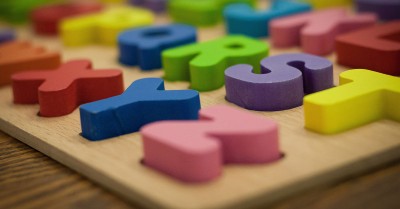

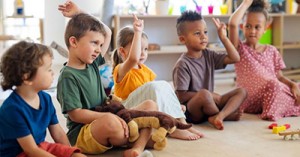
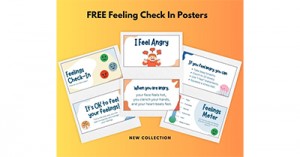
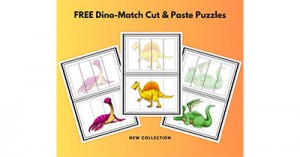
 Open ended questions cannot be responded to with one word answers such as yes or no. These types of questions enables a child to provide
Open ended questions cannot be responded to with one word answers such as yes or no. These types of questions enables a child to provide During your child’s preschool years, an important milestone begins to emerge. This is the development of pre-writing skills. Pre-writing skills are used to encourage, develop
During your child’s preschool years, an important milestone begins to emerge. This is the development of pre-writing skills. Pre-writing skills are used to encourage, develop Open ended materials enables children to play freely. They are objects that have no rules to follow, use or function. Raw materials that can be
Open ended materials enables children to play freely. They are objects that have no rules to follow, use or function. Raw materials that can be An Acknowledgment of the Country is a way of showing respect for the Traditional Owners and can be given by both non-Indigenous people and Aboriginal
An Acknowledgment of the Country is a way of showing respect for the Traditional Owners and can be given by both non-Indigenous people and Aboriginal Language plays an important role in a child’s development. It enables a child to communicate effectively with their family, learn at school, socialize with friends,
Language plays an important role in a child’s development. It enables a child to communicate effectively with their family, learn at school, socialize with friends, Like adults, children have to deal with their own stress in life. Moving house, starting a new school, preparing for a new sibling - these are
Like adults, children have to deal with their own stress in life. Moving house, starting a new school, preparing for a new sibling - these are Playdough is such a versatile material. It provides numerous benefits to children as they manipulate it, it is safe and soothing and provides children with
Playdough is such a versatile material. It provides numerous benefits to children as they manipulate it, it is safe and soothing and provides children with Teaching children about sustainability enables them to appreciate and respect the natural environment. Early childhood services can provide meaningful hand on learning experiences in order
Teaching children about sustainability enables them to appreciate and respect the natural environment. Early childhood services can provide meaningful hand on learning experiences in order Recycling is an important concept that teaches children to care for the environment. It encourages children to be responsible and show a growing appreciating for
Recycling is an important concept that teaches children to care for the environment. It encourages children to be responsible and show a growing appreciating for When children apply paint to paper, glue things together, or pound a lump of clay, they experiment with colour, shape design and texture.
When children apply paint to paper, glue things together, or pound a lump of clay, they experiment with colour, shape design and texture.
